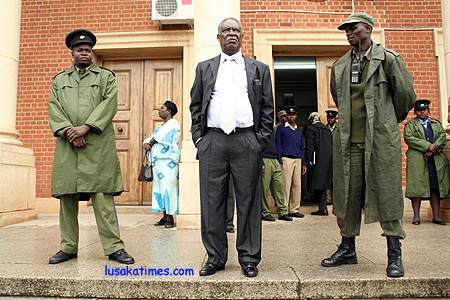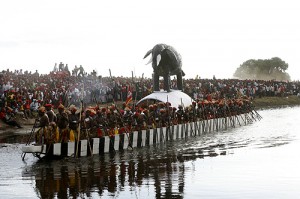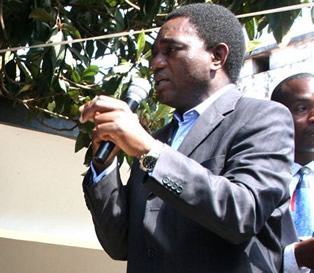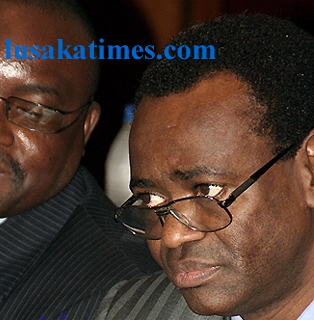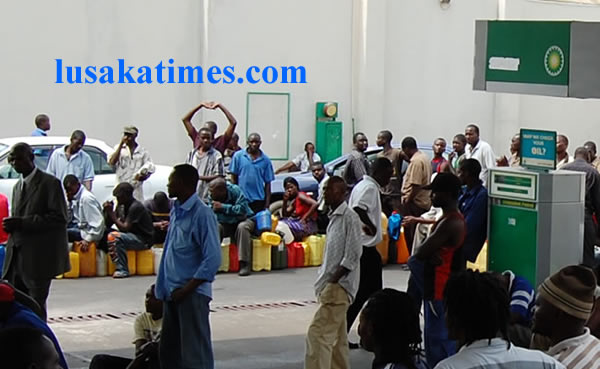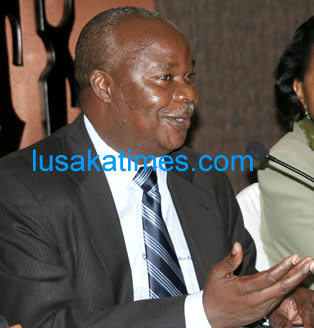by Dr. Charles Ngoma
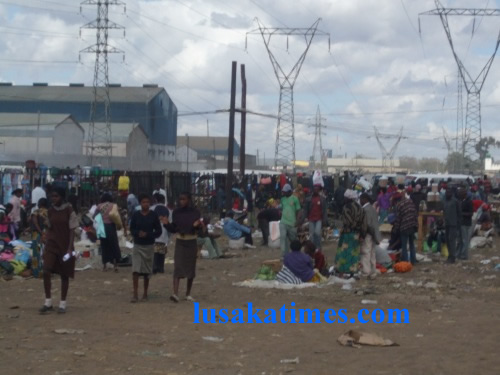
As a little boy in the renamed town of Fort Jameson in the late 60s and early 70s. I was fascinated by two ‘white’ men. They were very successful businessmen in the town. From their farms, fresh produce flowed day in and day out, supplying the town folk. Forty years later, I look back and from their names, I gather that they were Jews. One was Cohen, which is the Hebrew for ‘priest.’ Today, the arid lands of the Middle East are feeding the lush lands of Western Europe. The desert sands of Egypt export potatoes to Britain! Why are Jews and Arabs so successful? To understand this, we need to be careful about how we define ‘the poor.’ The UN defines poverty as ‘the total absence of opportunities, accompanied by high levels of undernourishment, hunger, illiteracy, lack of education, physical and mental ailments, emotional and social instability, unhappiness, sorrow and hopelessness for the future. Poverty is also characterised by a chronic shortage of economic, social and political participation, relegating individuals to exclusion as social beings, preventing access to the benefits of economic and social development and thereby limiting their cultural development.’
This is a mouthful! When I look at each component of this definition closely, I realise that anyone of us can fit into this definition at any time. Perhaps, the underlying factor of poverty is ‘the absence of opportunities.’ We can never all have the same material goods, and we cannot all have the same wealth. Communism tried that and failed and that is partly because it mis-interpreted the writings of a great Jew called Karl Marx. The essence of Marx’s teaching is fundamental to Jewish and Arabic prosperity throughout the ages. Since Zambia is a ‘Christian nation’, bear with me while I quote the words of Christ, the Jew. ‘The poor will always be there for you to do something about…’ and elsewhere he talks about a widow who is ‘poor.’ Now the English is confusing here, because it uses one word for two different kinds of people. The first ‘poor’ are the destitute, beggars and those who are totally bowed down that they can never ever get by without help from another. The widow, on the other hand, belongs to the poor who have low income, but there is potential to grow that income through hard work and opportunities. Jesus is saying that the first type we must feel sorry for and we must help. The world will never get rid of those who are disabled, infirm and at extremes of age; these ‘poor’ will always be with us. These will always depend on charity unless ‘good news’ is preached to them!
I may be wrong, but I believe that when people talk about poverty, in general they are referring to low income groups. That is not poverty! Here is where Karl Marx was right; we must give as many people as possible control of ‘the means of production.’ Is the man who lives in a mud-walled, grass-thatched hut, on an acre of land in rural Mazabuka, but has 10 herds of cattle, 20 goats and some chickens poor, compared to an employed miner in Wusakili, Kitwe? The miner has a mobile phone, television, toilets with running water, electricity and possibly a jalopy! I put it to you dear reader that this miner is poor, because he is employed and he does not own the means of production. He cannot plan to increase his ‘yield’ at any time, except negotiate his salary through his union! The owner of the mine will always have the upper hand!
Our nationalist fathers wanted every Zambian to have ‘an egg a day’ for breakfast. We dreamt of public ownership of the means of production. I was young then, but I understood nationalisation to mean that Campbell Booker Carter stores (CBC) would be ours when it became Zambia Consumer Buyers Cooperation (ZCBC). We were promised that there would be no poor people in Zambia. We sung, ‘Dziko la Zambia ndilapamwamba!’ We would own the copper mines too! Who would be poor if they did own these golden geese that laid golden eggs? It was not very long before this dream was shattered. They too, mis-read Marx. Kaunda’s UNIP government discouraged personal enterprise and ambition. Mass employment was government policy. To be employed is to be enslaved! For a nation to prosper there must be as fewer people ‘employed by another’ as possible. More and more people must be entrepreneurs who create wealth.
What should be the role of government in all this? Well, I see two roles:
1. Level the playing field to give equal opportunities for all able bodied citizens to prosper in whatever they put their hands to. Legitimate self enterprise and entrepreneurship should be encouraged. No able-bodied person, fulfilling his God-given potential can remain poor. Some who lost their employment can look back and say that their sack was their luck. We need more wealth builders. We have graduates from University who can start up on their own, but are knocking from door to door ‘looking for employment!’ Engineers, teachers, doctors, nurses, pharmacists and so on, must be taught business skills so that they can start up on their own! Plumbers, electricians, carpenters, builders;, why should they be un-engaged? All these groupings could set up ‘Kibbutz’ (co-operatives) and create their own wealth. The more wealth is created, the more revenue the government collects in order to do the next part.
2. Provide for the needs of the real poor, that is those who are disabled, infirm, maimed and at the extremes of life. The HIV/AIDS pandemic is adding more and more souls to this camp. Some of these people did a great service to the country and now the country must serve them. In a civilised country, no one person should die because the society cannot look after them.


